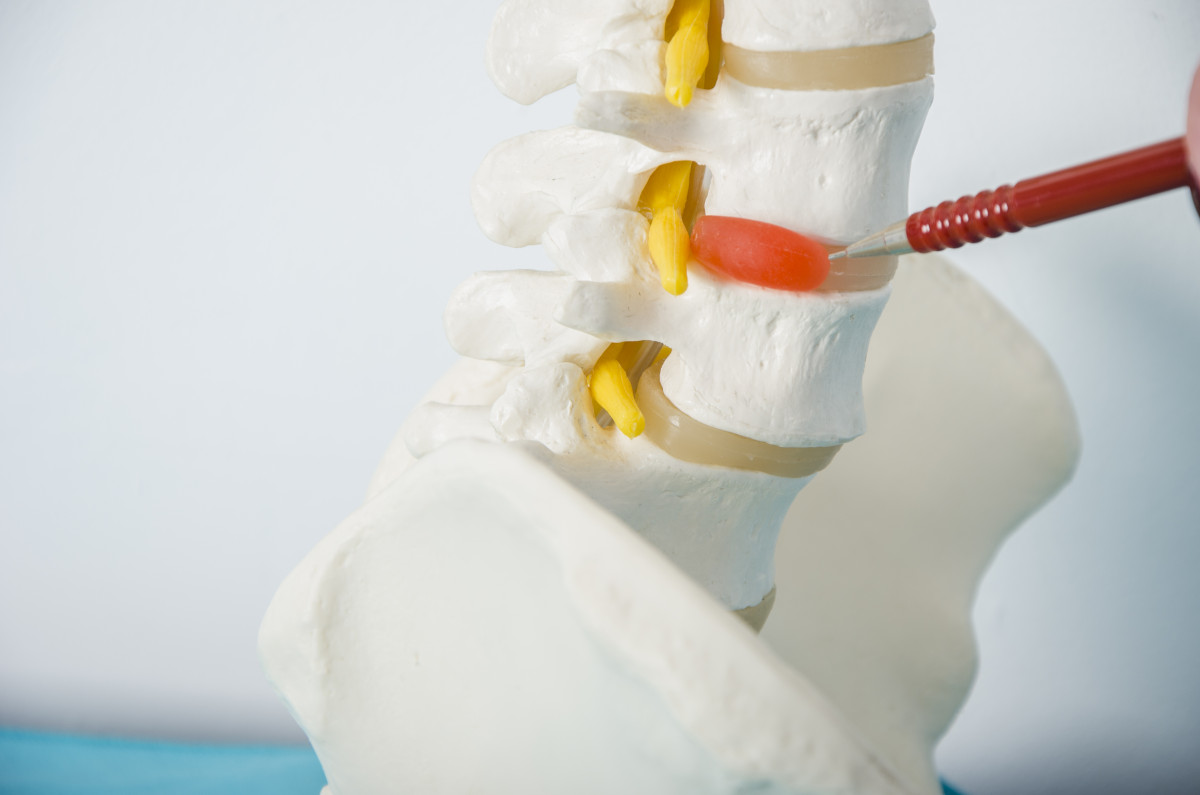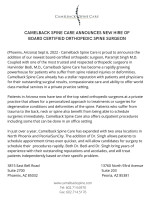The aging process in your musculoskeletal system is inevitable, as the years of heavy use begin to take their toll. When this process begins to affect the components in your spine, however, the price can be hefty as you struggle with chronic neck and back pain.
At Camelback Spine Care, Dr. Harvinder S. Bedi and our team have extensive experience helping our patients navigate the many problems that can crop up in your spine, from sciatica to stenosis. And driving many of these issues are discs that are starting to break down.
Here’s a look at why your discs degenerate and what we can do about it.
The natural breakdown
To better understand what happens to your discs when degenerative processes take hold, let’s first take a look at the anatomy of your spine.
Your spine is made up of vertebrae that stretch from your head to your pelvis. In between these vertebrae are discs that provide crucial cushioning, support, and range of motion. To accomplish this, each of your discs is made up of a tough cartilage exterior that houses a jelly-like substance on the inside.
As you get older, there are several problems that can arise, starting with a loss of volume inside your discs as the substance inside begins to dry up. As well, the tough exteriors can naturally lose moisture, making your discs more brittle and prone to herniation and rupture. Not to mention, normal wear and tear can weaken the outer layers, rendering your discs more vulnerable to damage.
As your discs begin to compress, crack, or bulge, this reduces the amount of space in between your bones, which react by creating more bone (these are called bone spurs). This response is your body’s way of trying to maintain the strength of your spine.
These bone spurs, in turn, can irritate and compress your nerves, leading to local and radiating pain, as well as tingling and numbness.
As well, if your discs bulge out of their spaces, they can also irritate the nerves in the area, which is typically what occurs when you have sciatica.
It’s worth noting that most people undergo degenerative changes in their discs, but not everyone develops symptoms. Some people lead perfectly normal lives despite the degeneration while others struggle with pain and discomfort.
Diagnosing and treating your discs
If you’re experiencing pain or discomfort in your back or neck, our first step is to get a closer look at what’s going on inside using advanced imaging technology, such as X-rays and MRIs. If we find that disc degeneration is creating the problem, our goal is twofold: Help you find relief and prevent further deterioration.
For relief, we often turn to over-the-counter anti-inflammatory medications and/or steroid injections. Once you’re more comfortable, we then set about remedying the problem for longer-term results.Â
In many cases, we use a combination of regenerative medicine to help your discs heal and repair themselves and physical therapy to add more strength to the supporting tissues that surround your spine.
If these measures aren’t sufficient, we also offer surgical solutions in which we remove the damaged portions of your disc or fuse your vertebrae together.
If you suspect degenerative disc disease is causing your back or neck pain, please contact our office in Sun City, Arizona, to set up an appointment. Or you can book online right here on the website.
Â






